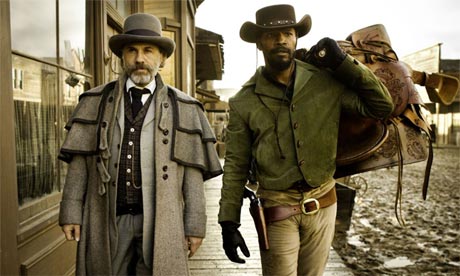Besides being a wise, fantastic and generally hilarious person, he has been blessed with an incredible skill.
What is it, you ask?
He can sum up a film in a few simple sentences.
And his predictions: Spot on.
Suck on that Mayans!
Let me just show you a hint of his prowess by way of example. Here are his observations on one of my current obsessions, Downton Abbey:
Mystery Critic: Whose that lady and why is she making you cry?
Me: Her name is Lavinia and she's dying.
Mystery Critic: What's she dying of? Boredom.
End scene.
Skills like these shouldn't go to waste, so I asked him to weigh in on the Oscar films. But let me be clear: Mystery Critic's time is incredibly limited. He has zombies and aliens to slay in his basement and math test to pretend to study for, so some of the films he simply refused to screen. This was understandable, of course, but incredibly frustrating as a film fan thirsty for a fast one-take on each film. When I could get him to comment, however, it was well worth the wait. Here are his simple but erudite predictions:
Mystery Critic on Beasts Of the Southern Wild - The people in this movie are eating shrimps right out of the shell. I didn't know you could do that?! Why don't you let me do that? Wow. Their table manners are pretty bad, huh? Wait, wait, wait: Is that guy driving a boat-made-out-of-the-back-part-of-a-truck? AWESOME!!
Mystery Critic on Argo- This movie was pretty good but The Town was waaaay better. Anything with Renner is better.
Mystery Critic on Zero Dark Thirty- So I can't see this because there are some torture scenes in it? That's lame. I play Black Ops, all the time! And why is Jessica Chastain in everything?
Mystery Critic on Lincoln- Is this about a dead president? Ugh. I'm out.
Mystery Critic on Life of Pi - This movie made me think about life. Alot. But not about pie. I prefer cake.
Mystery Critic on Silver Linings Playbook - No. Way.
Mystery Critic on Les Miserables - They got the title right, anyway.
Mystery Critic on Django Unchained - Why did you go to that without me? That is so unfair.
Mystery Critic on Amour - I have to listen to French all day at school. My brain needs a break from that language.
Peace out and enjoy Oscar Night! Or as we refer to it at our house The Female Super Bowl.

